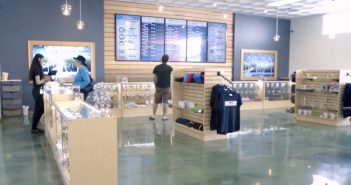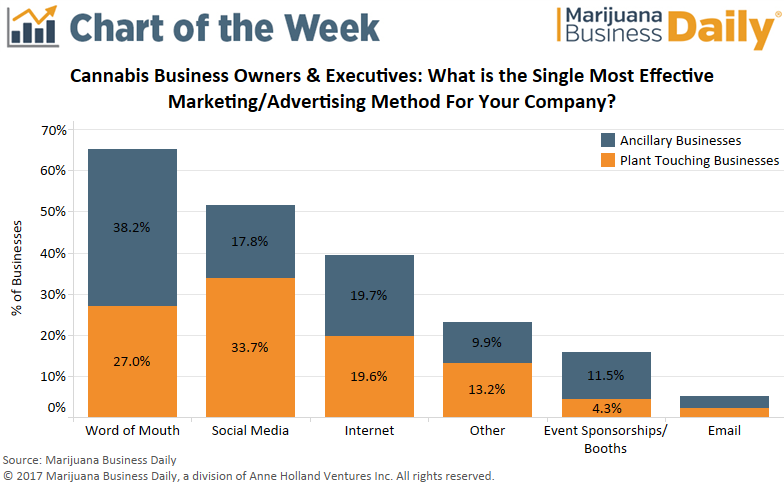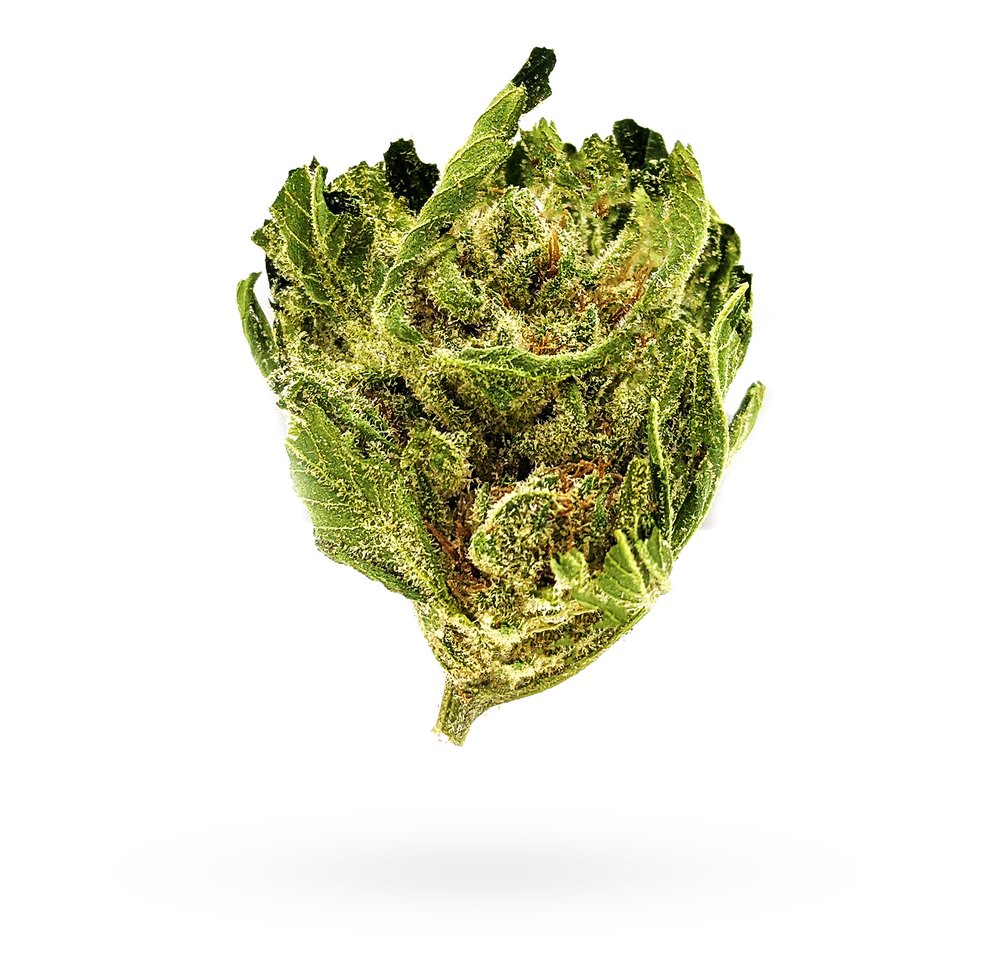On July 22, an estimated 200 women in the cannabis industry will gather for what’s being called an “empowerment summit” in downtown Los Angeles. The concept? To teach one another the negotiation skills, assertiveness, and business savvy necessary to thrive in the quickly growing cannabis market.
In the last six months, there’s been a number of articles on how female entrepreneurs are able to rise in the cannabis industry in a way that they have been unable to in more established realms of corporate America. As of 2015, women constituted 36 percent of executive-level positions in marijuana companies compared to 22 percent in other industries.
But, says Empowerment Summit Co-founder Kristen Yoder, these stories of female execs have given people a skewed perception of how egalitarian the cannabis world actually is. It’s true, she said, that there’s a low barrier to entry for outside entrepreneurs of all genders as the market is flush with opportunities for innovation. It’s not true, however, that there’s no glass ceiling for women already working at companies in the industry.
“Generally we just hear about the success stories, but I can tell you from personal experience that I’ve had to continually deal with harassment the entire time I worked at a dispensary,” she said.
Yoder, who has worked in L.A.’s cannabis industry for 11 years, says she’s dealt with gender discrimination in almost every part of the supply chain from production to laboratory testing. One major problem, she said, is that cannabis companies have not been required to have standard operating procedures or employee training. In Los Angeles’ still quasi-legal cannabis industry, she says “HR seems to be a bad word.”
Yoder started out at 22 years-old as an employee at a dispensary in Venice where she was required to wear a skirt or dress. She then worked at an edible company for three years where she was one of three women on staff, all of whom ended up quitting. It wasn’t until she found a mentor in Simone Cimiluca-Radzins — a L.A.-based entrepreneur with her own cannabis podcast and consulting company — that she felt she could venture out on her own.
Her story is not unique, Yoder says. She knows a lot of women in the cannabis industry who got “fed up” with the lack of professionalism where they worked and are now starting their own companies. They often have good ideas, but they come up against discrimination when trying to raise capital.
The summit next month will match these sorts of aspiring cannapreneurs (mentees) with women like Yoder (mentors). Many of the mentors will be women who developed their business acumen in other industries first, something that Yoder says makes it easier to succeed than if you’re a cannabis employee who is trying to ascend the ranks.
Women Abuv Ground, a L.A.-based organization for women in cannabis, seeks to do something similar. The group, founded in February, already has 600 members and chapters around the country. Women Abuv Ground founder Bonita “Bo” Money said the organization is growing so quickly that they’re being contacted by a number of large brands who want to collaborate. Leafly, the biggest cannabis database on the web, for example, sponsored the group’s most recent gathering as a way of displaying their commitment to diversifying their company.
“I think [the cannabis industry] is always going to be sexist, but because we have a lot of women right now who are in power I think we are able to make deals and be acknowledged,” said Money. She emphasized the importance of women, particularly women of color, sticking together in order to ensure that that happens.
Kimmy Tan, a L.A.-based YouTube influencer and entrepreneur, has been making videos online about cannabis since 2007, but she only joined Women Abuv Ground last month. She was amazed, she said, to find what a strong community there is of supportive females in the cannabis industry. “Everyone I’ve met so far has been so positive, just a beaming light of everything I feel like women should be,” said Tan. She hypothesizes this is because the majority of cannapreneurs she’s met entered the industry because “they or someone they know has been healed by cannabis.” This shared commitment to wellness can diffuse the competitiveness felt in other industries.
Suzanne Shpall, founder of L.A.-based organic edible company Highland Pantry, has had a similar experience. She worked for more than 10 years in the fashion industry where she says she found it difficult to find female mentors. In cannabis, however, she’s only encountered encouragement.
“In this industry, I become friends with almost all the women I meet,” said Shpall. “I don’t know if it’s the subject matter or the background of the women or the fact that there’s room for all of us, but there’s just this acknowledgment that we can only be better together.”
On July 22, an estimated 200 women in the cannabis industry will gather for what’s being called an “empowerment summit” in downtown Los Angeles. The concept? To teach one another the negotiation skills, assertiveness, and business savvy necessary to thrive in the quickly growing cannabis market.
In the last six months, there’s been a number of articles on how female entrepreneurs are able to rise in the cannabis industry in a way that they have been unable to in more established realms of corporate America. As of 2015, women constituted 36 percent of executive-level positions in marijuana companies compared to 22 percent in other industries.
“Generally we just hear about the success stories, but I can tell you from personal experience that I’ve had to continually deal with harassment the entire time I worked at a dispensary,” she said.
Yoder, who has worked in L.A.’s cannabis industry for 11 years, says she’s dealt with gender discrimination in almost every part of the supply chain from production to laboratory testing. One major problem, she said, is that cannabis companies have not been required to have standard operating procedures or employee training. In Los Angeles’ still quasi-legal cannabis industry, she says “HR seems to be a bad word.”
Yoder started out at 22 years-old as an employee at a dispensary in Venice where she was required to wear a skirt or dress. She then worked at an edible company for three years where she was one of three women on staff, all of whom ended up quitting. It wasn’t until she found a mentor in Simone Cimiluca-Radzins — a L.A.-based entrepreneur with her own cannabis podcast and consulting company — that she felt she could venture out on her own.
Her story is not unique, Yoder says. She knows a lot of women in the cannabis industry who got “fed up” with the lack of professionalism where they worked and are now starting their own companies. They often have good ideas, but they come up against discrimination when trying to raise capital.
The summit next month will match these sorts of aspiring cannapreneurs (mentees) with women like Yoder (mentors). Many of the mentors will be women who developed their business acumen in other industries first, something that Yoder says makes it easier to succeed than if you’re a cannabis employee who is trying to ascend the ranks.
Women Abuv Ground, a L.A.-based organization for women in cannabis, seeks to do something similar. The group, founded in February, already has 600 members and chapters around the country. Women Abuv Ground founder Bonita “Bo” Money said the organization is growing so quickly that they’re being contacted by a number of large brands who want to collaborate. Leafly, the biggest cannabis database on the web, for example, sponsored the group’s most recent gathering as a way of displaying their commitment to diversifying their company.
“I think [the cannabis industry] is always going to be sexist, but because we have a lot of women right now who are in power I think we are able to make deals and be acknowledged,” said Money. She emphasized the importance of women, particularly women of color, sticking together in order to ensure that that happens.
Kimmy Tan, a L.A.-based YouTube influencer and entrepreneur, has been making videos online about cannabis since 2007, but she only joined Women Abuv Ground last month. She was amazed, she said, to find what a strong community there is of supportive females in the cannabis industry. “Everyone I’ve met so far has been so positive, just a beaming light of everything I feel like women should be,” said Tan. She hypothesizes this is because the majority of cannapreneurs she’s met entered the industry because “they or someone they know has been healed by cannabis.” This shared commitment to wellness can diffuse the competitiveness felt in other industries.
Suzanne Shpall, founder of L.A.-based organic edible company Highland Pantry, has had a similar experience. She worked for more than 10 years in the fashion industry where she says she found it difficult to find female mentors. In cannabis, however, she’s only encountered encouragement.
“In this industry, I become friends with almost all the women I meet,” said Shpall. “I don’t know if it’s the subject matter or the background of the women or the fact that there’s room for all of us, but there’s just this acknowledgment that we can only be better together.”
credit:420intel.com













